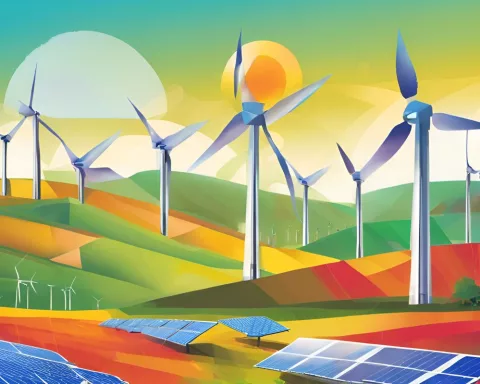The South African Minister of Trade, Industry, and Competition has recently announced Energy Users and Energy Suppliers Block Exemptions to encourage collaboration among companies and institutions in the energy sector. These exemptions allow for joint investment in shared energy infrastructure, joint financing and risk-sharing, and collaborative training and skills development programs. This move aims to address the nation’s electricity supply constraints and improve the efficiency of energy use.
Facilitating Collaboration in the Energy Sector
The Energy Users and Energy Suppliers Block Exemptions are a strategic decision to enable energy suppliers and users in South Africa to increase capacity, reduce costs, and improve efficiency while securing backup or alternative energy sources. These exemptions provide increased flexibility during crises such as the COVID-19 pandemic and the recent unrest in July 2021.
Benefits of Collaborative Solutions
These block exemptions enable institutions to reduce energy costs, secure backup or alternative energy supplies, optimize energy use, and share resources such as sites, infrastructure, equipment, and facilities. However, it is important to note that the exemptions do not permit price-fixing, collusive tendering, or resale price maintenance practices.
Duration and Withdrawal of Exemptions
These Energy Block Exemptions will remain effective until withdrawn by the Minister. Companies and institutions that collaborate under these exemptions will be given reasonable notice to wind down such agreements before the withdrawal date.
Innovative Approach to South Africa’s Energy Challenges
The Energy Users and Energy Suppliers Block Exemptions represent a forward-thinking approach to tackling South Africa’s electricity supply constraints. By fostering an environment that encourages collaboration, innovation, and resource-sharing, these exemptions can contribute to the nation’s long-term economic development.
Potential for Long-Term Solutions
While these exemptions are not permanent solutions to the country’s energy challenges, they provide a valuable framework for fostering collaboration and innovation in the energy sector. By encouraging cooperation among energy suppliers and users, South Africa can develop a more robust and reliable energy infrastructure that is better prepared to face future challenges.
In conclusion, the Energy Users and Energy Suppliers Block Exemptions represent a significant step towards addressing South Africa’s energy challenges and improving the efficiency of energy use. By promoting collaboration, innovation, and resource-sharing, these exemptions have the potential to catalyze considerable change within the energy sector and contribute to the nation’s long-term economic development.












